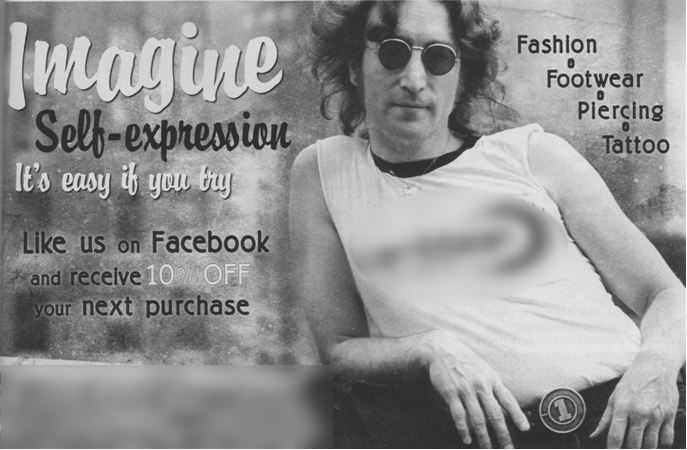Advances in artificial intelligence have become a threat to performers whose vocal and visual likenesses can be readily created through AI algorithms.
This especially relevant to the heirs of celebrities who are no longer living.
With a little help from his friends, John Lennon’s voice will be on a new Beatles song once again, the latest in a wave of technologically reincarnated performers who attorneys say are rely on a checkerboard of unreliable state publicity rights.
Paul McCartney told BBC Radio 4 recently, reports Bloomberg Law, that the Beatles will release a new song later this year, using AI to isolate and “extricate” Lennon’s voice from a demo tape recorded about two years before his death in 1980.
It’s difficult to determine right now if these creations are more or less authentic (and legal) than a Lennon “sound-alike” using AI to create a new recording. Presumably, the remaining Beatles, McCartney and Ringo Starr, and Lennon’s heirs, have the rights implement the AI-informed vocal track. It’s when an AI user does not have permission to create or mimick a recognizable voice that trouble ensues.
New Music From Familiar Voices
The rapid rise of generative AI has prompted more than just technological enhancements of established voices. It’s also led to the creation of new music with artists’ voices mimicked using the technology, with some attempting to revive late musicians like Nirvana frontman Kurt Cobain and hip-hop legend the Notorious B.I.G.
In some states, such as California and New York, using an artist’s voice after their death may violate state laws protecting performers’ right of publicity owned by their heirs.

“Of course it’s not legal to just take Paul McCartney’s voice, or John Lennon’s voice, but the technology is so easy to use and just out there that people do it,” said Manaswi Mishra, a research assistant at MIT Media Lab.
In 1988, the Midler v. Ford Motor Co. decision, the US Court of Appeals for the Ninth Circuit sided with singer Bette Midler, who had sued the automaker for releasing an advertisement that used an actor to imitate her voice and sing a song from one of her albums.
In this instance, Ford and its representative agency tried and failed to secure Midler for its Taurus intro promotion, and then went out and hired a sound-alike performer, violating the well-known singer’s rights. Had the automaker gone with the sound-alike initially the courts may have ruled differently.
“AI is just a technology that’s able to do it [recreate convincingly] at scale—and much faster, with less training data—but it’s the same kind of right of publicity as mimicking somebody’s voice or taking clips of them and then misusing the context in which the identity is represented,” said Mishra.
Mimicry or Infringement
How will mimicking be determined in the AI world? To what extent will an AI copy be accepted as a legitimate creation, separate from the original? These and other questions have yet to be answered.
AI will not only affect celebrities and their aural and visual likenesses, but less well-known entertainment, artistic and content creators.
A federal right of publicity law will provide consistency, especially as more artists choose to live outside of California and New York, the most celebrity-laden states. The Defend Trade Secrets Act become federal law in 2016, although a network of varying state laws are still in effect.
Image source: statuteofryanne.com; americanbar.org

